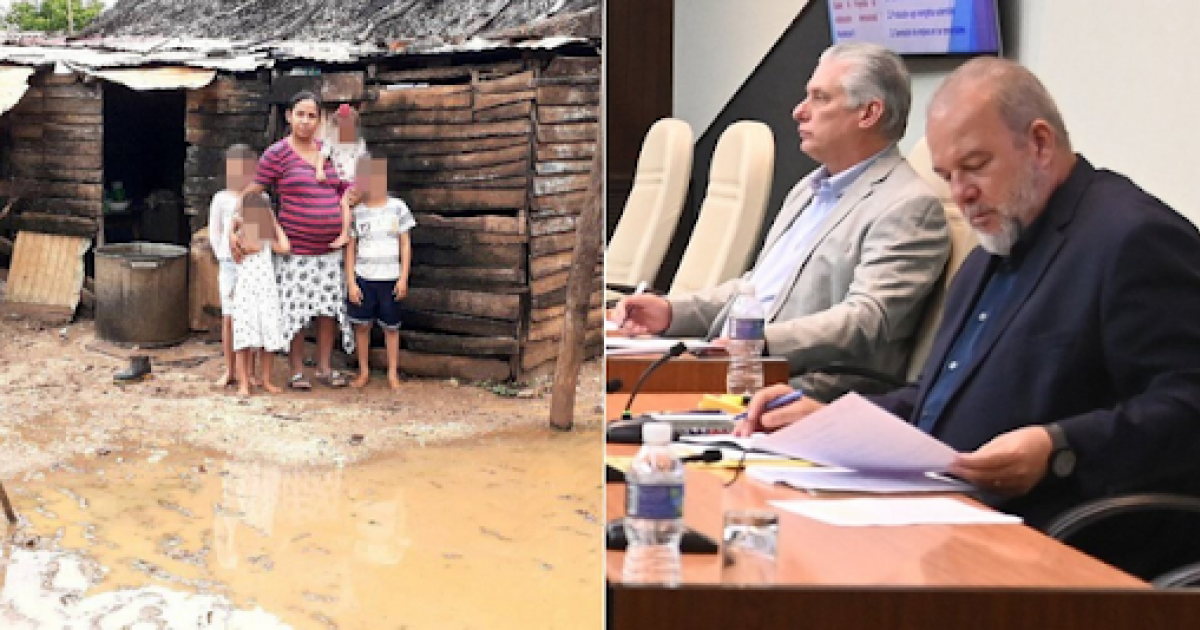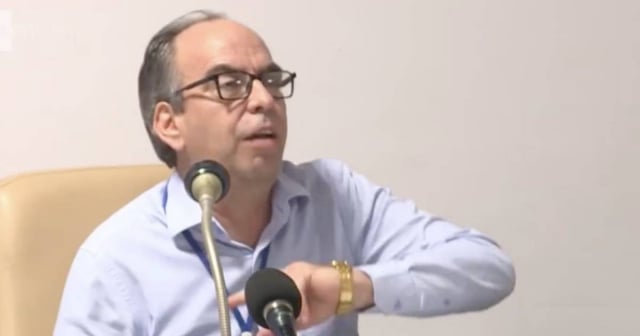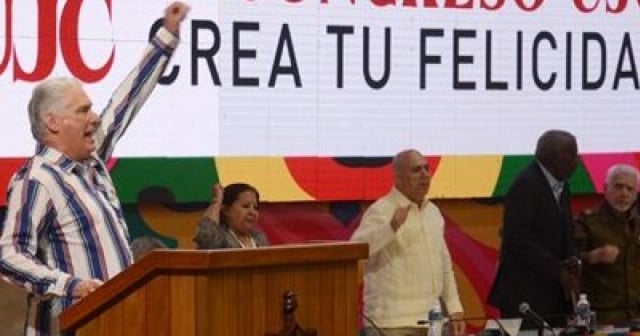
HeCuban regime recognizes that 1,236 communities in the country live in misery. This was admitted by the Minister of Labor and Social Security, Marta Elena Feitó Cabrera, in front of Miguel Díaz-Canel, in a work meeting in which she assured that 96% of the problems related to extreme poverty in the country are "in process of comprehensive transformation", just when Cuba is going through one of the worst economic crises in its history.
The Cuban regime's numbers do not fit with those provided by other independent organizations. In March of last yearCuba was already the poorest country in Latin America. According to the renowned international electoral observatory DatoWorld, the Island has a poverty rate of 72%, well above Venezuela (50%) and Honduras (48%), which are the States that overshadow it in the Latin American ranking. To reach this conclusion, data provided by theCuban Observatory of Human Rights (OCDH),which in September 2023 reported a worrying increase in national poverty.
In its VI Report on the State of Social Rights in Cuba, the OCDH spoke of 88% extreme poverty, 13 points more than in 2022. More than a thousand interviews carried out for this study showed that what worries most for Cubans on the Island is food, salaries and inflation. Almost seven out of ten respondents saw the management of the authorities as "very negative" and more than eight out of ten indicated as "insufficient" investments in public services such as health and education and in other sectors such as housing and agriculture.
Such is the deterioration of living conditions in Cuba, that poor countries in the region have had to donate food and medicine. The crisis in the health and food system is worsening on the Island in the midst of one of the highest inflations in the world. There are tests daily. Thisthe case of a retiree from Holguín who, with a pension of 1,700 pesos, paid half of his salary (860 pesos) for 10 bananas and a bomb fruit.
To this very difficult economic situation we must add repression to silence, for example, those who asked for change in the protests of July 11, 2021.
Given this panorama, it is understandable whyMore than half a million Cubans emigrated to the United States in the last two years. It is a figure that represents 4.8% of the island's population. Last year, more than 153,000 people from Cuba entered the United States irregularly. There are another 67,000 who emigrated legally, thanks to the Parole Program. Added to this data are the 313,000 who arrived in the US in 2022.
These numbers break all historical records, if we take into account that in the sixties 300,000 people emigrated, in the 80s there were 130,000 and in the 90s 35,000 fled.
We must also add emigration to Europe, mainly to Spain, whose Consulate in Havana registered 15,000 applications for Spanish nationality, in accordance with the Grandchildren Law, in the first six months of last year. Also in Mexico, between 2022 and 2023, 36,574 Cubans requested refuge and at least 22,000 entered Uruguay.
Prospects for improvement are not in sight. After the announcement of the 500% increase in the price of fuel, several Cuban economists warned that inflation will continue to grow and that far from alleviating the situation, they will generate "an inflation bomb." This increase in prices will be transferred to the pockets of Cubans, who will see how these increases will affect them, for example, when taking a taxi.
Finally, the country's erratic economic policy took down former Minister Alejandro Gil, who had been in charge of the Economy since 2018 and who last December said that inflation was slowing down.
What do you think?
SEE COMMENTS (6)Filed in:






